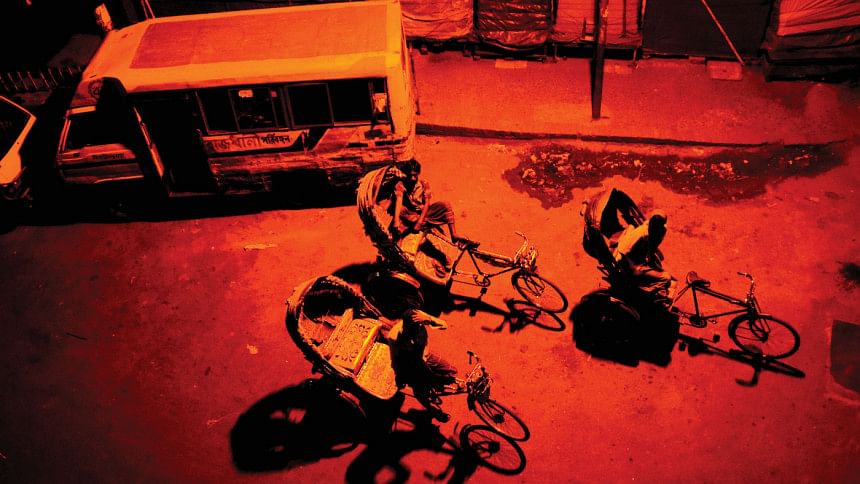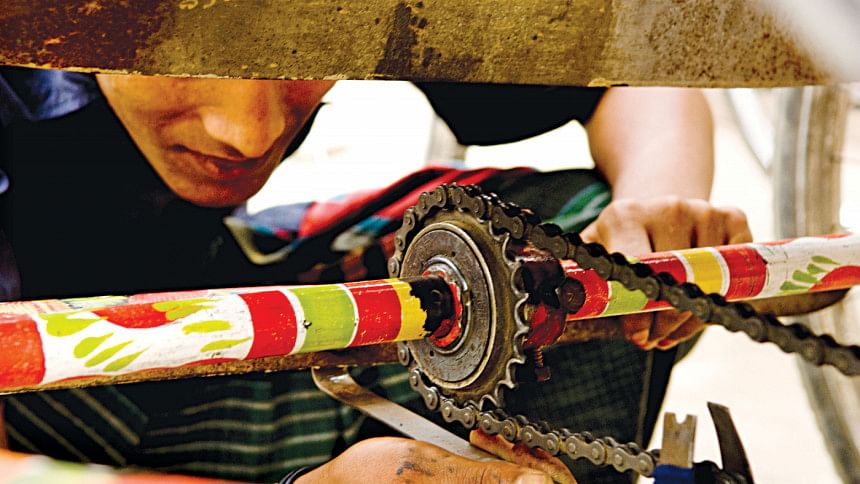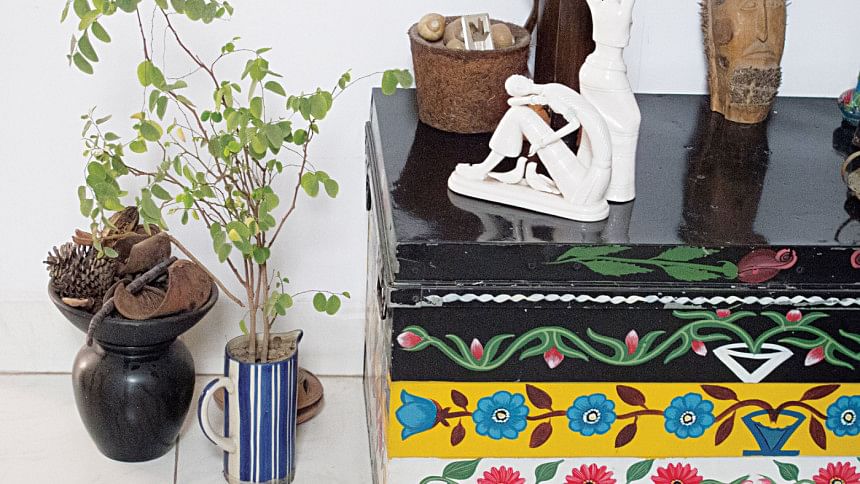The magic of rickshaw and rickshaw painting

In the early nineties, while setting up my first home. It became a challenge to decorate my small apartment with limited funds and starting from almost zero. Soon, I learned the magic of upcycling and recycling flea market finds and hand-me-down furniture.
I needed a big storage piece but I could not afford to build a wooden option for it. Thus, I bought the traditional big, black trunk from Karran Bazar for a meagre amount but its imposing black presence was an eyesore.

So, I decided to upcycle it by painting it in traditional rickshaw motifs.
I roamed the narrow lanes of Chankharpul and found an artist who turned it into a beautiful art piece, with shapla, butterflies, and other rickshaw motifs. He took something like Tk 800 for it. I am still grateful to him for I used the trunk as my centre table and stored my quilts and winter wear inside it.
When I read the news that Unesco inscribed Bangladesh's rickshaws and rickshaw paintings to its list of Intangible Cultural Heritage of Humanity my heart fluttered. I remembered my art piece that brought so many compliments and sowed the seed of upcycling and bohemian décor as a hobby in me.
Rickshaw paintings and their colourful composition of rustic and kitsch motifs have grabbed everyone's attention ever since the '70s, when decorating the pedicab with tassels, tinsel, and colourful plastic started. It was said that the painters expressed their heart's desires, the longings of the common man, or the rickshaw pullers. Thus, movie stars, pastoral Bangladesh, and religious motifs were all depicted through this art form.
Today, rickshaw art and artists are in a struggle for existence but Unesco's including it in the list of the intangible cultural heritage of humanity will help raise awareness of its importance and allow people to appreciate its loud glaring neon colours.

What is fascinating is how recognised artists are bringing it to the fore by incorporating it in products that make for souvenirs of Dhaka.
Jatra, a handicrafts store of the colourful arts and crafts of Bangladesh, has popularised this pop art as their mainstream attraction.
Artists and designers like Kuhu Plamondon and Chandana R Dewan made a T-shirt collection called Dhaka Kitsch with rickshaw art-inspired designs. The tees are appreciated because of their glaring example of "kitsch" in the local context.
Biskut Factory is a statement label that specialises in splashing rickshaw art and can pretty much jazz up any everyday object and turn them into an object of art -- teapots, miscellaneous boxes and trunks, guitar/ukulele, or scooters and helmets. Biskut Factory has made rickshaw art-themed sunglasses and cell phone covers popular among the Dhakaiites.
Rickshaws and rickshaw paintings are Bangladesh's fifth entry to the list, the other entries are Jamdani and Shital Pati weaving industries, Baul songs, and Mangal Shobhajatra.

 For all latest news, follow The Daily Star's Google News channel.
For all latest news, follow The Daily Star's Google News channel. 



Comments